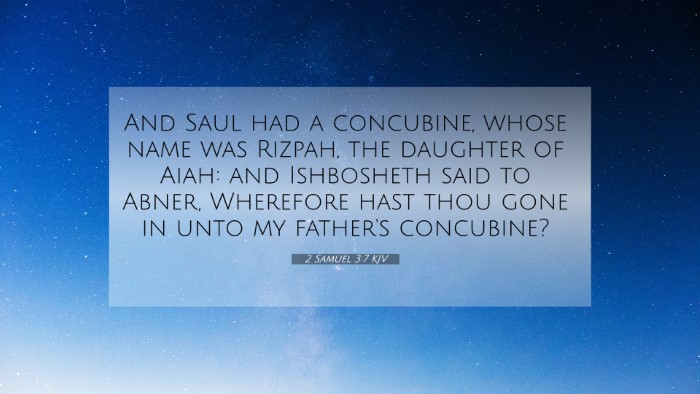Old Testament
Genesis Exodus Leviticus Numbers Deuteronomy Joshua Judges Ruth 1 Samuel 2 Samuel 1 Kings 2 Kings 1 Chronicles 2 Chronicles Ezra Nehemiah Esther Job Psalms Proverbs Ecclesiastes Song of Solomon Isaiah Jeremiah Lamentations Ezekiel Daniel Hosea Joel Amos Obadiah Jonah Micah Nahum Habakkuk Zephaniah Haggai Zechariah MalachiVerse
2 Samuel 3:1 2 Samuel 3:2 2 Samuel 3:3 2 Samuel 3:4 2 Samuel 3:5 2 Samuel 3:6 2 Samuel 3:7 2 Samuel 3:8 2 Samuel 3:9 2 Samuel 3:10 2 Samuel 3:11 2 Samuel 3:12 2 Samuel 3:13 2 Samuel 3:14 2 Samuel 3:15 2 Samuel 3:16 2 Samuel 3:17 2 Samuel 3:18 2 Samuel 3:19 2 Samuel 3:20 2 Samuel 3:21 2 Samuel 3:22 2 Samuel 3:23 2 Samuel 3:24 2 Samuel 3:25 2 Samuel 3:26 2 Samuel 3:27 2 Samuel 3:28 2 Samuel 3:29 2 Samuel 3:30 2 Samuel 3:31 2 Samuel 3:32 2 Samuel 3:33 2 Samuel 3:34 2 Samuel 3:35 2 Samuel 3:36 2 Samuel 3:37 2 Samuel 3:38 2 Samuel 3:39






